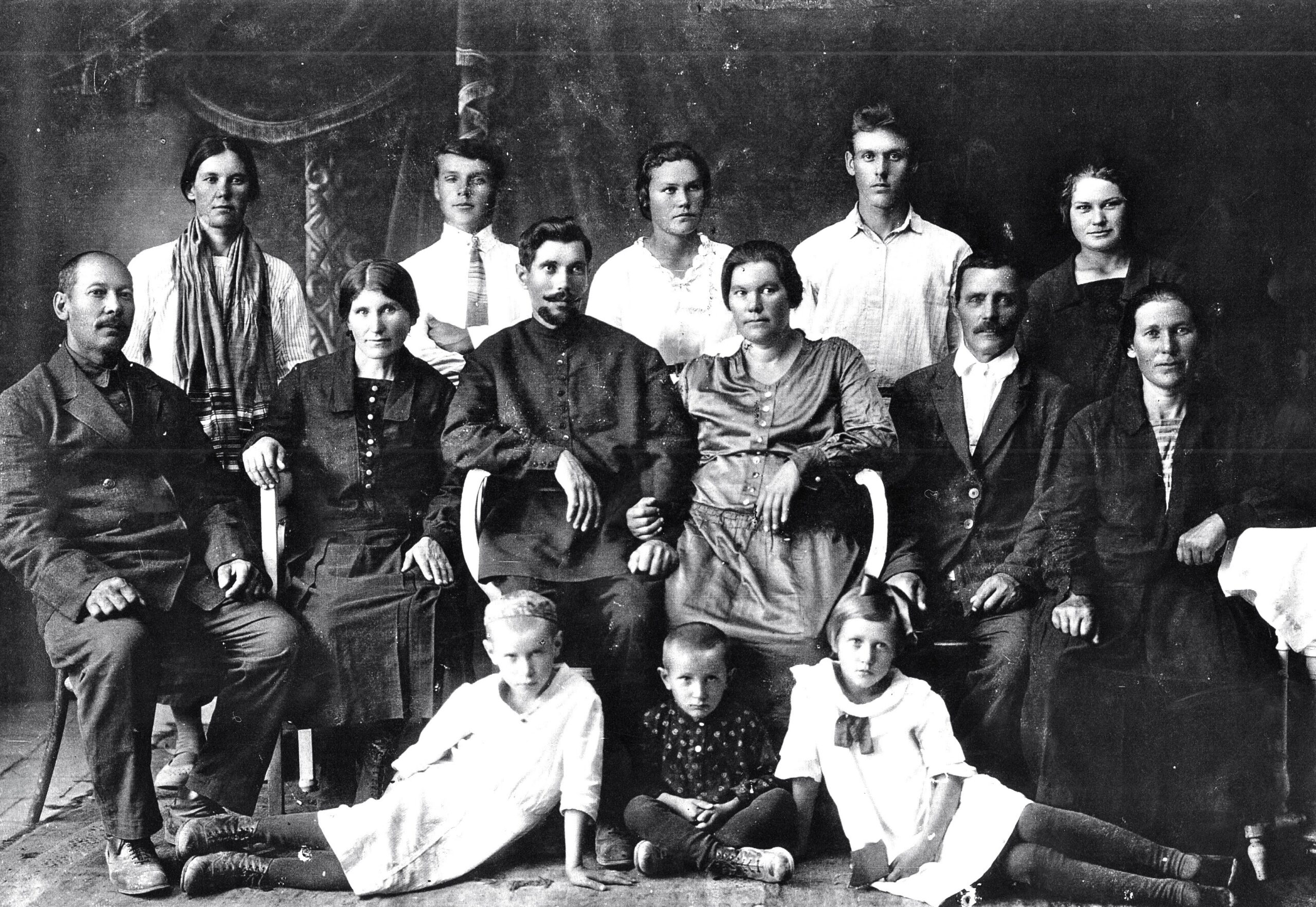
Alexandra Temoschenko
Alexandra Temoshenko, a Pentecostal Christian, moved to Oregon in 1974 and played an important role in early efforts to help acclimate the first Russian Evangelical immigrants to the state. She was born in 1945 in China, in the province of Xinjiang, but the story of her immigration begins several decades earlier, with the experiences of her grandparents in Ukraine.

In the early 20th century, Alexandra’s grandparents, farmers and adherents of the Russian Orthodox tradition, were living in the Nikolayev District in present-day Ukraine. In the early 1920s they witnessed the preaching of Ivan Efimovich Voronaev, a founder and leader of the Pentecostal movement in Ukraine. He and his followers established 350 Pentecostal congregations and groups in Ukraine in less than 6 years.
Alexandra’s grandparents directly interacted with the first missionaries of Voronaev’s growing organization in Ukraine and converted to Pentecostalism in 1925. Shortly after that, in the spring of 1928, her grandparents and the majority of the Evangelical Christians in their community made a communal and religiously guided decision to sell their holdings in Ukraine and travel across the Soviet Union and into China. They were motivated by religion but also by the changing political climate: Stalin’s ascent to power meant the onset of Soviet forced collectivization, frequent famines and religious persecution. First they moved to the Ural region, where they spent almost 2 years working on the land and spreading the gospel to local communities. In 1930 the group decided to move East to Kazakhstan to the city of Alma Ata (present day Almaty), where they lived for a year, mostly in the mountains, in very hard conditions. Alexandra’s family’s next destination was Imperial China, although some members of the community went as far as Australia and, by way of the Philippines, the US. Border security was much less stringent in those times and Alexandra’s family, together with other members of their community, took a risk and walked across the border while making sure to avoid sporadic patrols on the Soviet side. They settled in the province of Xinjiang and continued their farming; there was no need at the time for any official documents or government permissions.

Front row left: Alexandra Temoschenko’s mother
Alexandra’s parents, both of whom belonged to the same group that came to China and had settled in the same small town of Kuldja along with other Evangelicals from Ukraine, married in 1942. A year later their first child was born, followed by the birth of Alexandra in 1945. Soon after, the Chinese Revolution began to unfold and in 1949 the country became Communist. Initially, the Evangelicals were tolerated, as had been the case in the early years of the Soviet Union, but eventually the official position of the Communist regime took a turn for the worse and enacted widespread bans on religion and worship, which also came to affect the Evangelicals. Those who didn’t follow the new Communist ideology were persecuted and taken to labor camps. Furthermore, any expression of desire to emigrate could arouse suspicions of espionage and lead to arrest and imprisonment. An additional threat came from the USSR’s close ties with its younger Communist neighbor: prior to 1960 the official Soviet position demanded that all Russians abroad were to be returned to Russia, where they would likely end up interred at a labor camp.

However, after territorial disputes in the early 60’s soured Soviet ties with China, the Chinese no longer cared about the official Soviet position, and in this climate, Alexandra’s family sought to secure official permission to leave China in order to escape the Communist threat. Alexandra’s family was very lucky to receive this permission in 1964. But leave China and go where? Alexandra’s uncles had immigrated to Australia rather than China, and now they were able to act as sponsors for her family and aid in their relocation. After a few years in Australia, in 1968, Alexandra managed to get a tourist visa to travel to San Francisco to visit and stay with members of the Russian Gospel Temple. This church was founded by members of the very same group of Evangelicals who came from Ukraine to China.
When Alexandra arrived in the US, she helped teach Russian at the Russian Gospel Temple that was hosting her, and aided in the church’s outreach activities. Alexandra stayed with distant family members who were part of the Evangelical community. Eventually, Alexandra and the church decided to attempt to get her a green card to secure her a more permanent stay in the U.S. While Alexandra’s familial ties were a factor in getting her approved for a green card, it was also crucial that Alexandra could fulfill a critical role as a teacher of Russian who was also of the same cultural and ethnic background as the church members. What swayed immigration officials was the argument for the unique services Alexandra could provide the church, and she received a green card to stay and teach Russian language at the church. While there she met her husband, a Belgian with Russian roots and also an immigrant to America, and they got married not long after.
They continued living in San Francisco for a number of years before departing for Oregon. The first group of families came to Oregon from San Francisco after hearing of an Old Believer community in the Woodburn area. In coming there, they sought not only to establish their own church and preach, but to potentially integrate with the Old Believer community. Alexandra and her husband followed and moved to Woodburn in 1974. By this point, Alexandra was already well accustomed to life in America, but upon her arrival to Woodburn, she was struck by the affordability of everything, particularly how she and her husband could easily amass a down payment and purchase a house. Upon her arrival to Woodburn, Alexandra began working as a teaching assistant in a Woodburn public school where there were Russian children of other immigrants. Her language skills in English were limited, but she quickly picked up English and became an important link in communicating with the Russian-speaking parents of primarily immigrant children who attended the Woodburn public school. Alexandra’s church was key in securing immigration permissions for the latest wave of Evangelical immigration to Oregon. Alexandra worked with the church to support incoming immigrants with aid in finding housing, furniture, and basic necessities. Until the establishment of the Immigrant and Refugee Community Organization (IRCO) and Russian Oregon Social Services (ROSS), people from the church such as Alexandra worked to help aid immigrants interact with government agencies. For example, Alexandra spent many days during the height of the immigration wave helping translate for Russian speaking families at the DMV in Woodburn so that they could apply for driver’s licenses, helping upwards of 30 people in a day. Even though much social support has now been passed to official organizations, she continues to aid people with translation and any additional outreach undertaken by the church when she is asked. Alexandra is retired from her teaching assistant job and has most recently written a book detailing the experiences of herself and her family in their journey from Ukraine.
The majority of Alexandra’s extended family did not follow her in immigrating to America, as it became increasingly difficult to secure family-related visas for non-immediate family members, and on the whole, most of them were generally satisfied with their lives in Australia. Ultimately, Alexandra expressed great gratitude for her opportunity to come to America and the religious freedom that was afforded with the opportunity.
This story is written by Martin Dorciak, and it is based on the interview Martin conducted with Mrs Temoschenko in Woodburn, OR, June 30, 2014
